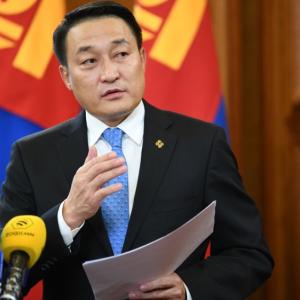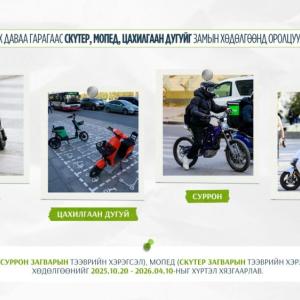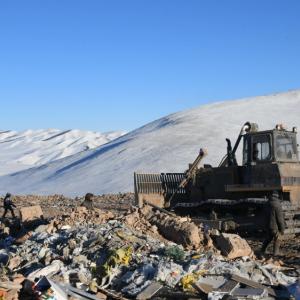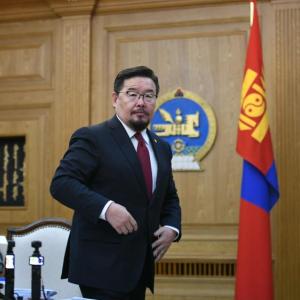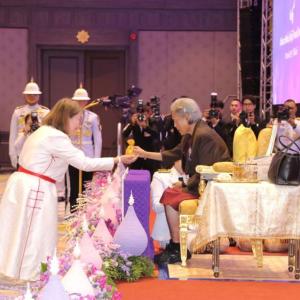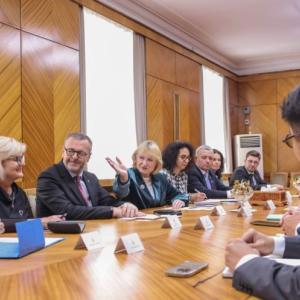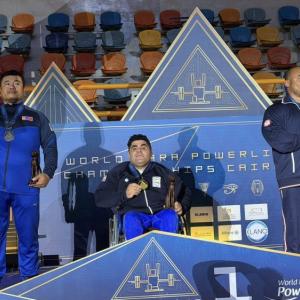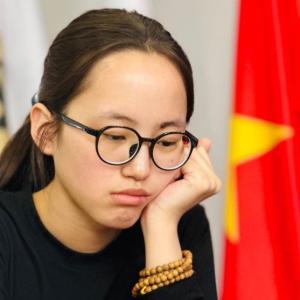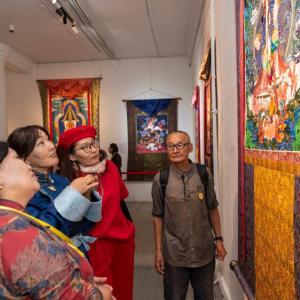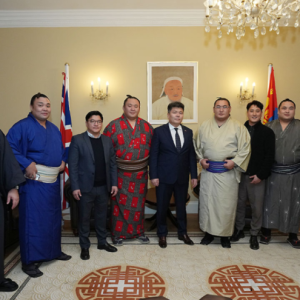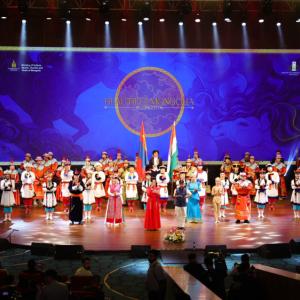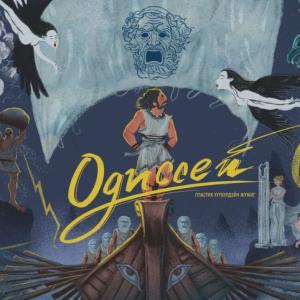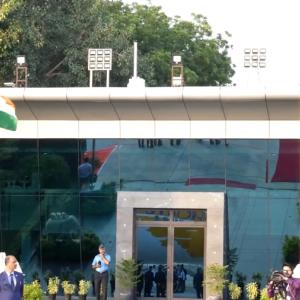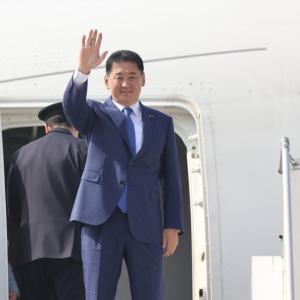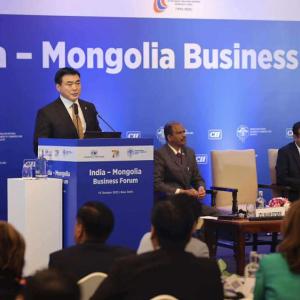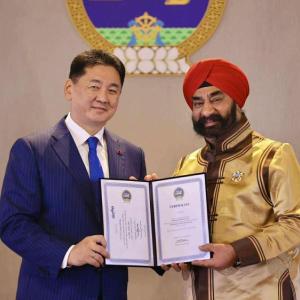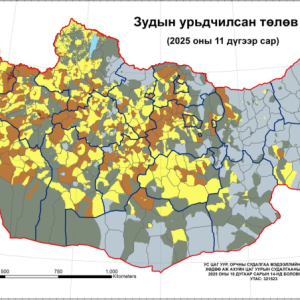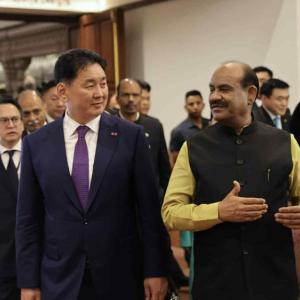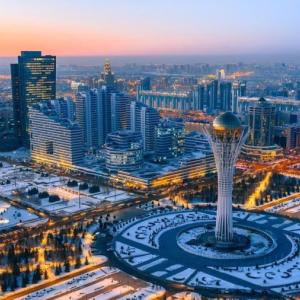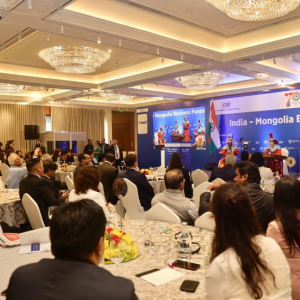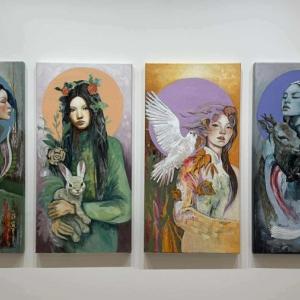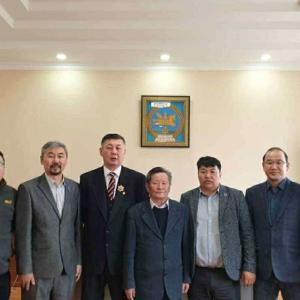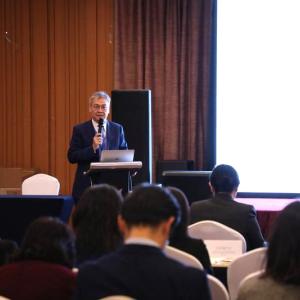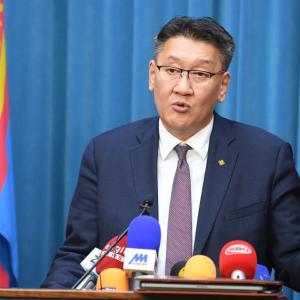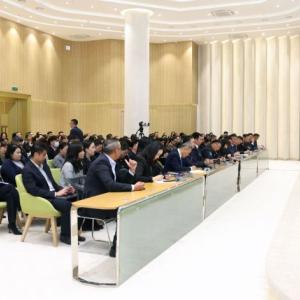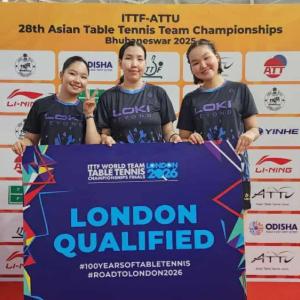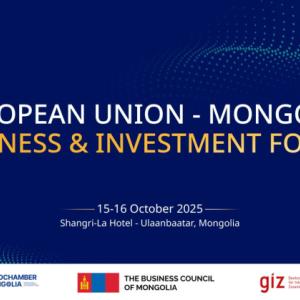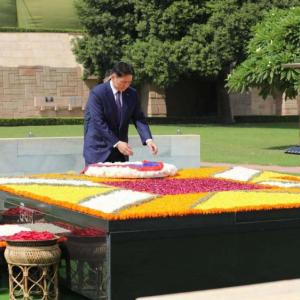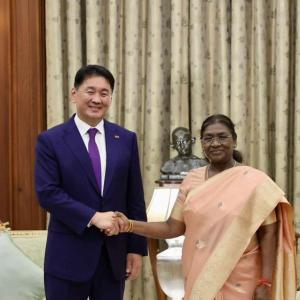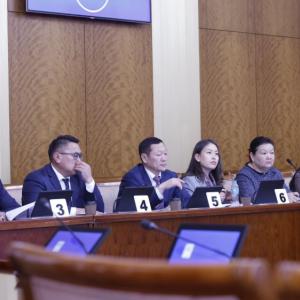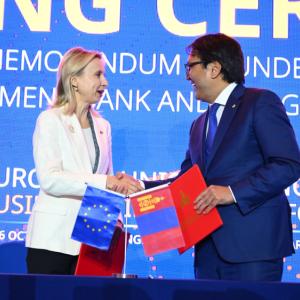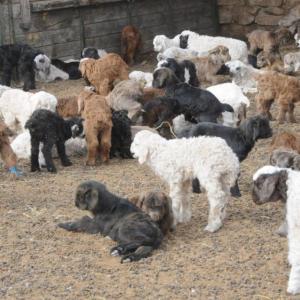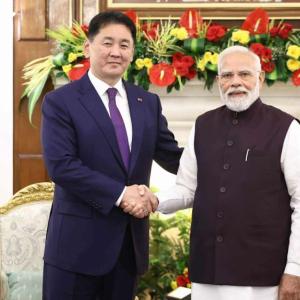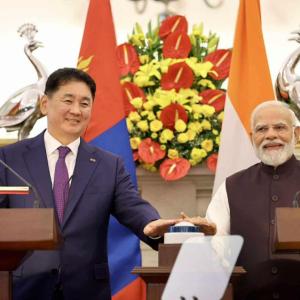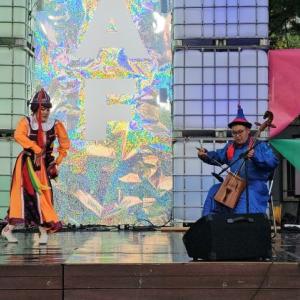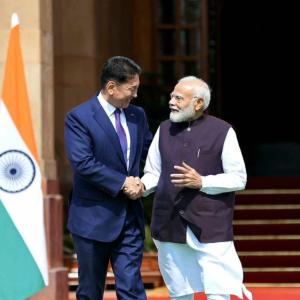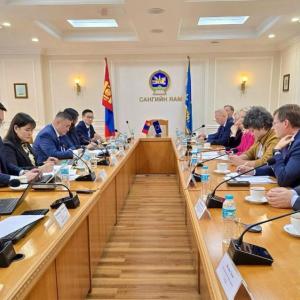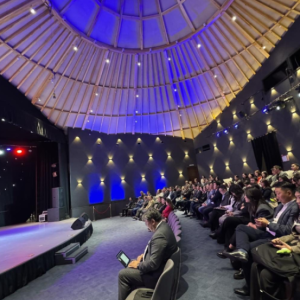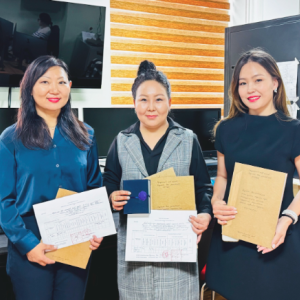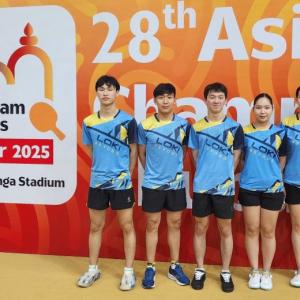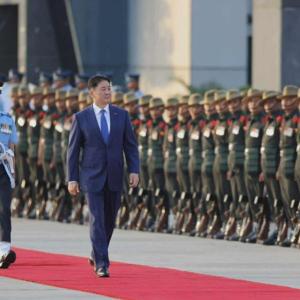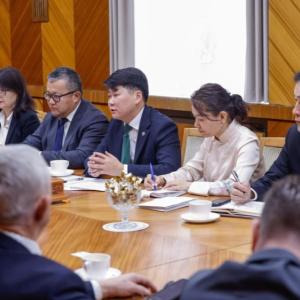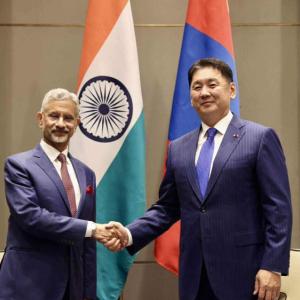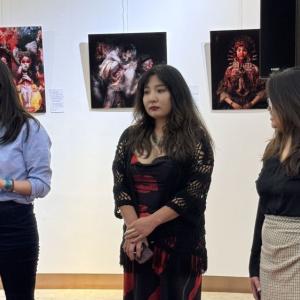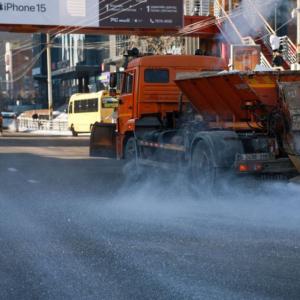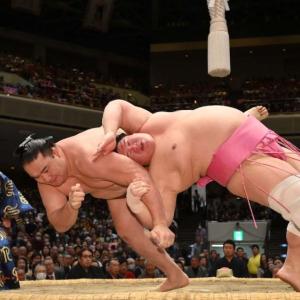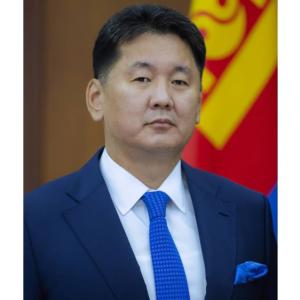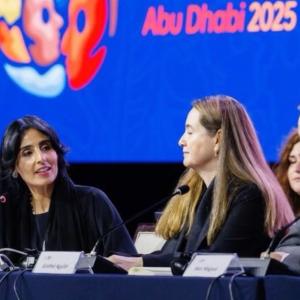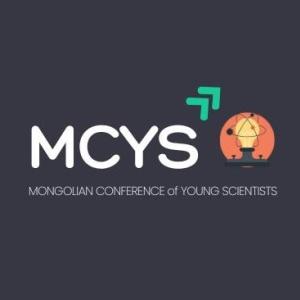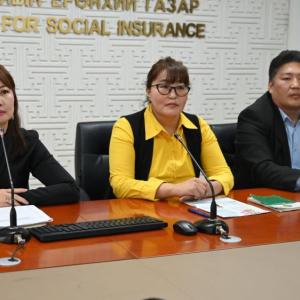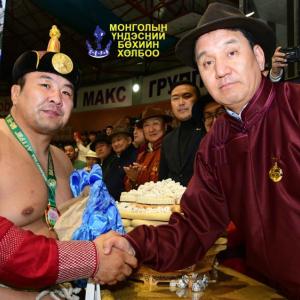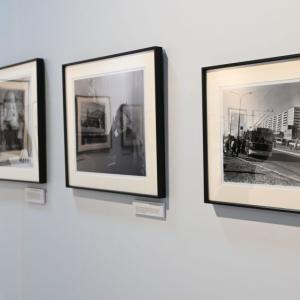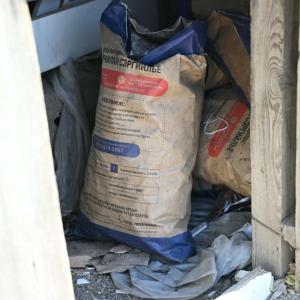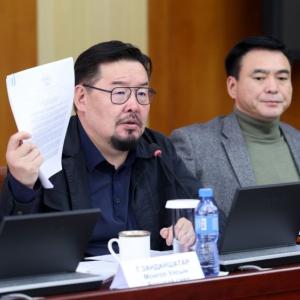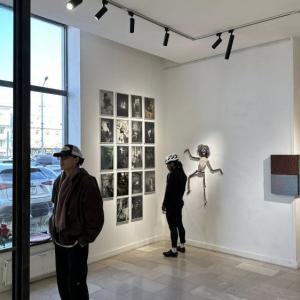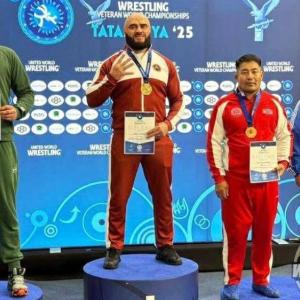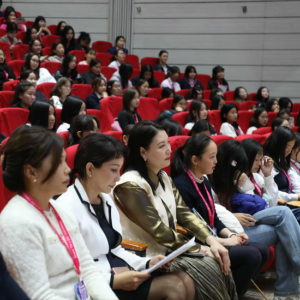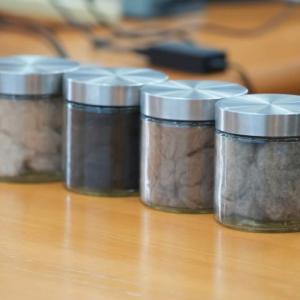AmCham Mongolia urges fight against corruption in Mongolia
Society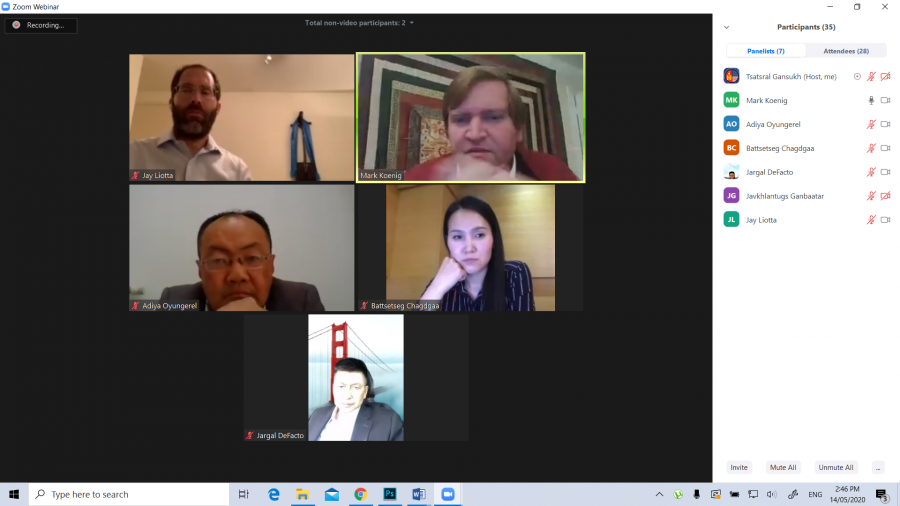
Ulaanbaatar/MONTSAME/. The American Chamber of Commerce in
Mongolia (AmCham Mongolia) organized its May Online Monthly Meeting as part of
the “Ensuring Fundamentals” initiative and discussed Mongolia’s fight against
corruption. The panelists were Mark Koenig, Country Representative of The Asia
Foundation; Jargalsaikhan D., founder of DeFacto Institute; and Battsetseg Ch.,
founder of OneAct, a civic anti-corruption initiative.
The panel discussion was moderated by Jay Liotta, Chairman
of AmCham Mongolia’s Board of Directors, and a Letterhead Partner at Mahoney
Liotta LLP. Over 40 attendees participated in the online discussion, including
representatives of AmCham member companies, and domestic and international
businesses, discussing current perceptions of corruption in Mongolia, and
sharing personal stories and experience with corruption.
In his opening remarks, AmCham Chairman Jay Liotta noted
that in times of public health crises, like the COVID-19 pandemic, society
holds people accountable by being vocal about those who are not adhering to
recommendations provided by health authorities. Yet, in times of problems like
corruption, the public and private sectors fail to come together with the same
effort being put forward to battle COVID-19.
The Asia Foundation’s Mark Koenig shared data from a recent
survey on the public’s perception of corruption in Mongolia and highlighted
that the results of the survey indicate that the public perceives corruption as
a problem at the highest rates in the 12-year history of The Asia Foundation’s
survey. However, Mr. Koenig noted that while it doesn’t necessarily indicate
that corruption is at its highest rate in society, it definitely shows that the
public is very much aware of the problem and the way it impacts all areas of
life negatively, from school admissions to business transactions and tenders.
He stated that there is a long road ahead with particular challenges, like the
system of politics based on patronage and the long-term ramifications of basing
public service positions on business transactions, which allow corruption to
flourish and result in political instability, leading to the discontinuity of
government policies.
Prioritizing and breaking down this big problem into
achievable and tangible steps toward progress is the most logical approach to
cleaning up this mess, as the current effort and resources are being spread too
thin. Although civil society is active and engaged in fighting corruption,
there is still no unified front within the government. The investigation and
prosecution of crimes of corruption should have much higher stakes than they do
today so that people will think twice before they decide to engage in these
types of crimes.
After Mark Koenig’s outlook on the state of corruption in
Mongolia as a whole, Jargalsaikhan D. offered his take on the dangers of not
regulating political party financing to fight corruption. In his speech, Jargal
noted, “The source of corruption comes from political party financing, and
recent amendments to the Law on Auditing has cut the function of auditing that
looks into political party financing, which leaves political party financing
without any regulation.” Jargalsaikhan also highlighted that the DeFacto
Institute was able to speak to party members and encourage them to question the
source of party finances. He said they would continue this line of work, as
Mongolia is about to experience the most expensive election in the country’s
history, in which there will be no way to monitor how much each candidate is
spending on their campaign. This creates a perilous situation for the state of
the corruption, as elected members of Parliament who have spent billions on
their campaign will have more incentive to engage in crimes of corruption in
the future.
Battsetseg Ch., the founder of OneAct, shared her personal
story of why she decided to start a civic movement to stay honest, ethical, and
to encourage others always to do the right thing. The unfairness of a corrupt
deal she was offered a few years ago struck a chord with her, inspiring her to
reject corruption culture and to fight it by forming a reputable, vocal, and
moral resistance movement.
Following the discussion, the panelists took part in a
Q&A session and answered the audience’s questions.
In conclusion, AmCham and the panelists urged the public to
come together and battle this pandemic of corruption, just like how the country
has come together in the face of the COVID-19 pandemic so that we can cure the
disease of corruption in Mongolia.
Source: amcham.mn
 Ulaanbaatar
Ulaanbaatar






